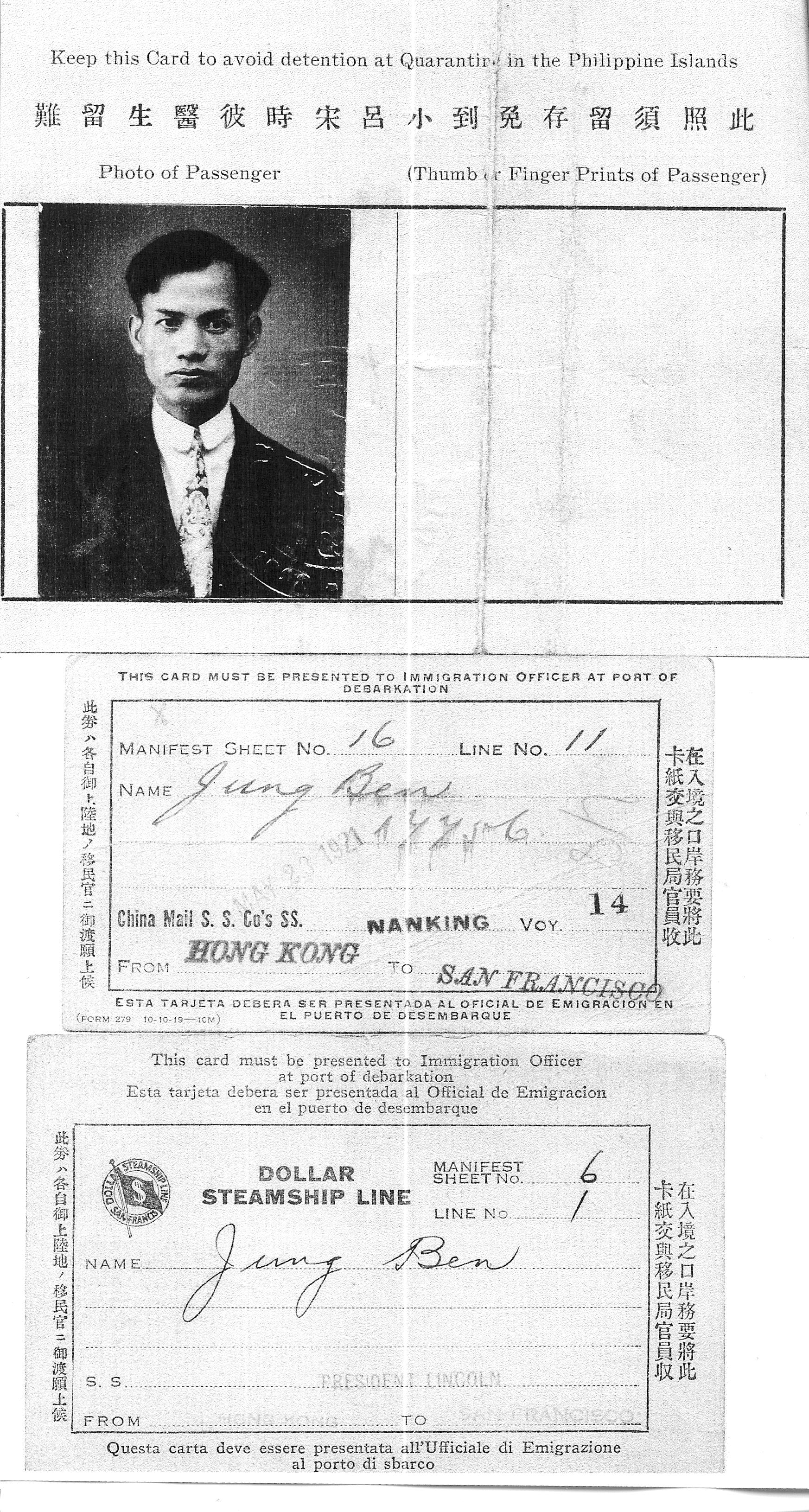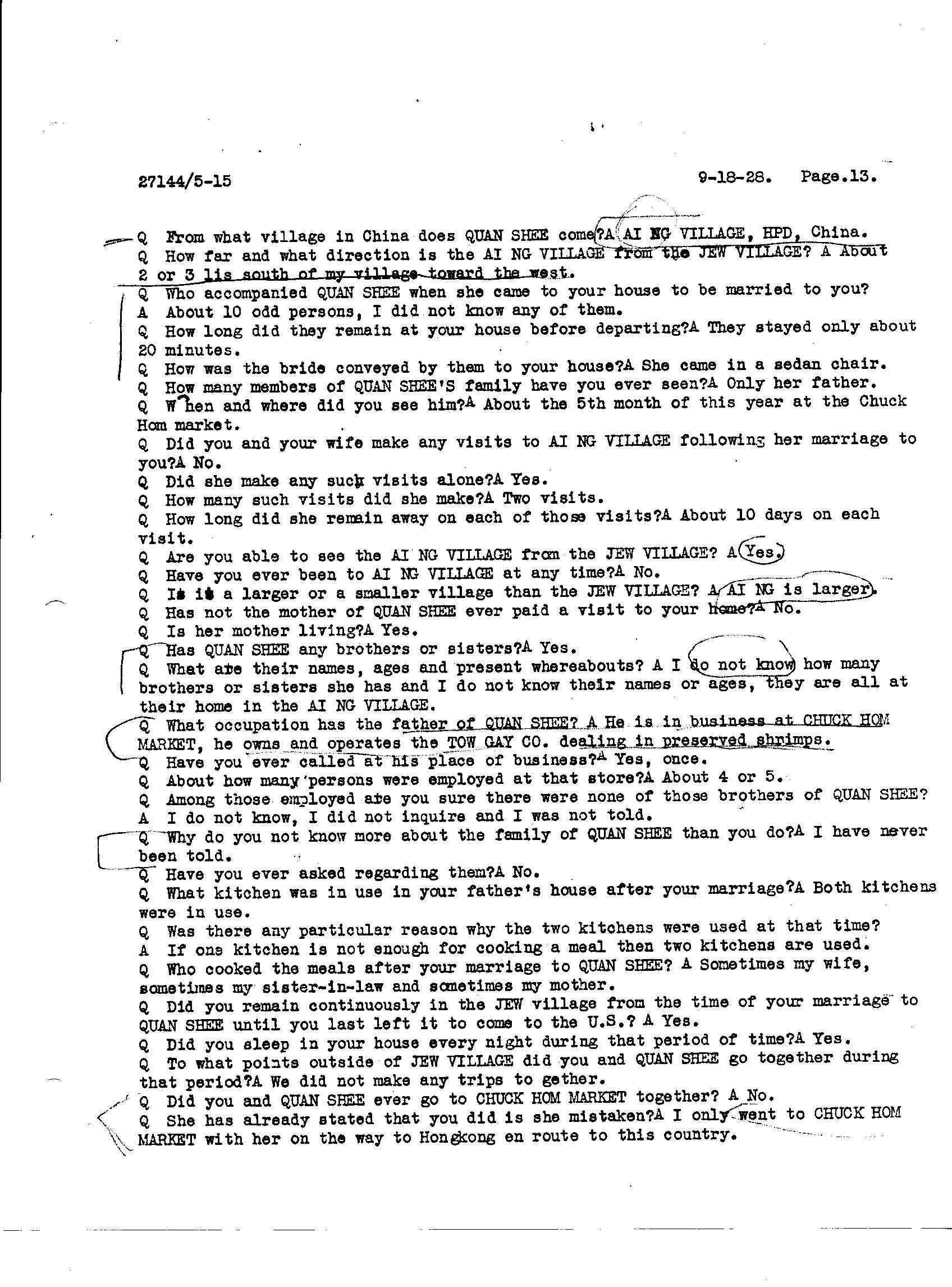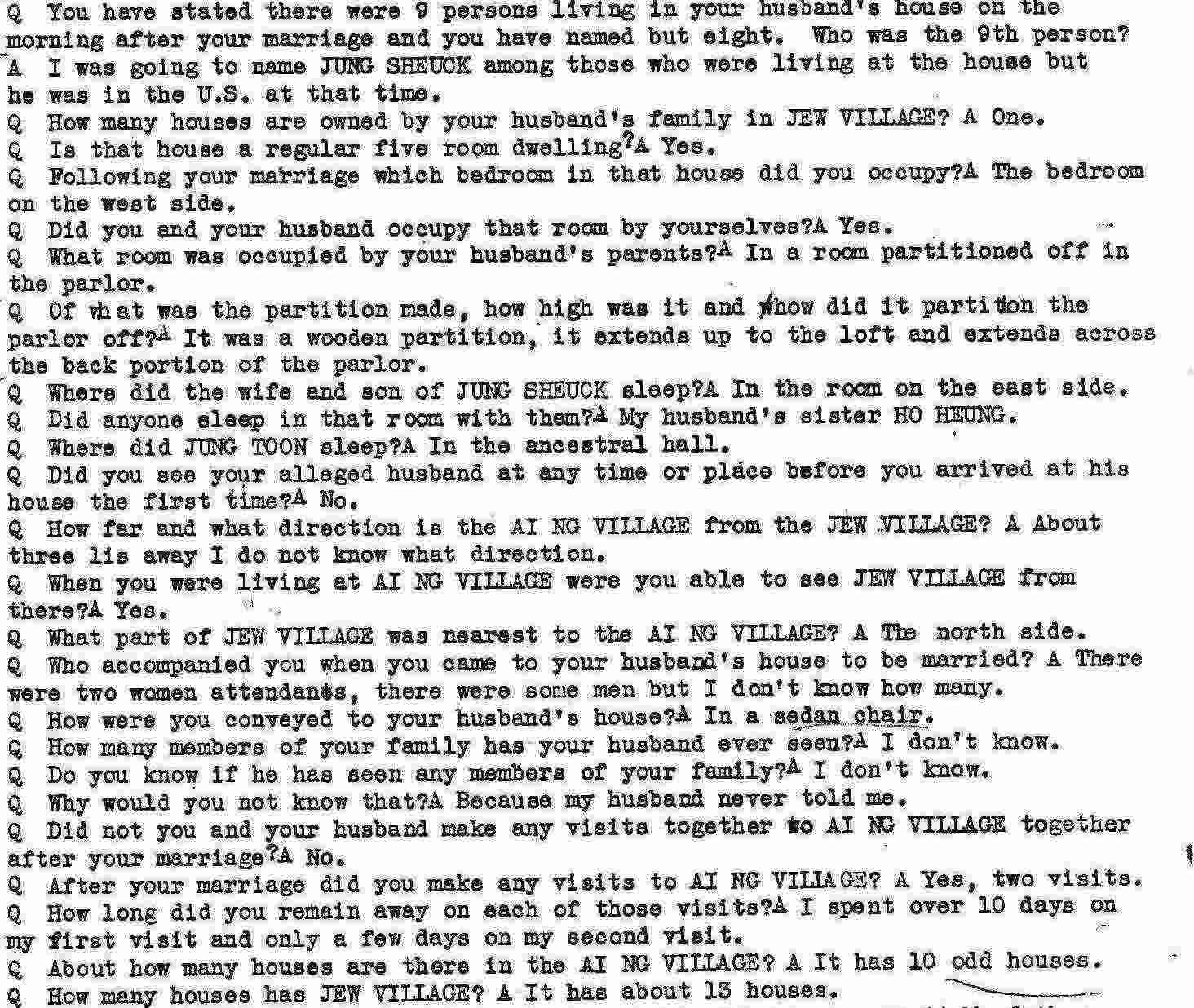 |
Do You Think You Could Pass The Immigration Interrogation? (Click link and find out) ______________________________________________
| Father's Immigration Document in 1921 |

|
| His name, Ben, was later changed to Frank |
My father, Kwok Fui, like all other paper sons, was coached carefully with answers for the kinds of questions that would
likely be asked. He had claimed to be the son of Jung Lim, a merchant in San Francisco, but in reality was using false papers
as no such son existed. That is of course why he had to abandon his family name, Lo, and use the surname, Jung, of his paper
father. During his immigration entry in 1921, he was asked dozens of questions. He was asked about the physical layout of
the village, which direction the main street faced, features of the house in which he lived such as how many windows were
on each side of the building, how many doors there were, and how many stairs led up to the front door. Questions about relatives
living in the home and where they slept were asked.
Angel Island Immigration Station
Chinese were processed for entry at the Immigration Detention and Quarantine Station on Angel Island in the San Francisco
bay not far from Alcatraz Island. Detention was usually two to three weeks, but many stayed for several months or even longer
while awaiting decisions.
Living conditions were austere if not outright deplorable. Men and women had separate common open barracks for sleeping
quarters that afforded no privacy. Women were even separated for a while from their children, creating much distress for all
of them. Communal living quarters held over 100 people who would sleep in bunk beds, stacked three high with little space
between each row.
Food was tasteless and bland, and totally foreign and different from the diet she was accustomed to in China. Sometimes
rice would be provided, but it was not steamed as the Chinese cook it, so it was not appetizing. The misery and anguish of
those detained on Angel Island were often poignantly captured in verses written in Chinese. These expressions of suffering
carved on walls of the buildings were later found and preserved.
My mother would later often relate to us about how difficult it was to be confined like a jail prisoner on Angel Island.
This trying ordeal that greeted her to America was one that she often related bitterly to her children as they grew up. She
used her experiences as evidence of how much injustice and discrimination was inflicted on the Chinese.
Angel, or Was It 'Devil' Island
Chinese immigrants felt like they were in a prison while they awaited the interrogation that would determine whether they
entered the U. S. or were deported. You can not imagine the ordeal until you see transcripts of the actual interviews. Here
is one page from my father's and one from my mother's interrogation. Each interview ran about 50 single spaced typed pages
with detailed questions about issues that no normal person could really answer well. With careful coaching and much study,
and some luck, they managed to 'pass' the test.
| Excerpt from Father's Immigration Interrogation |

|
| Below is an excerpt from mother's interrogation |

|
|
